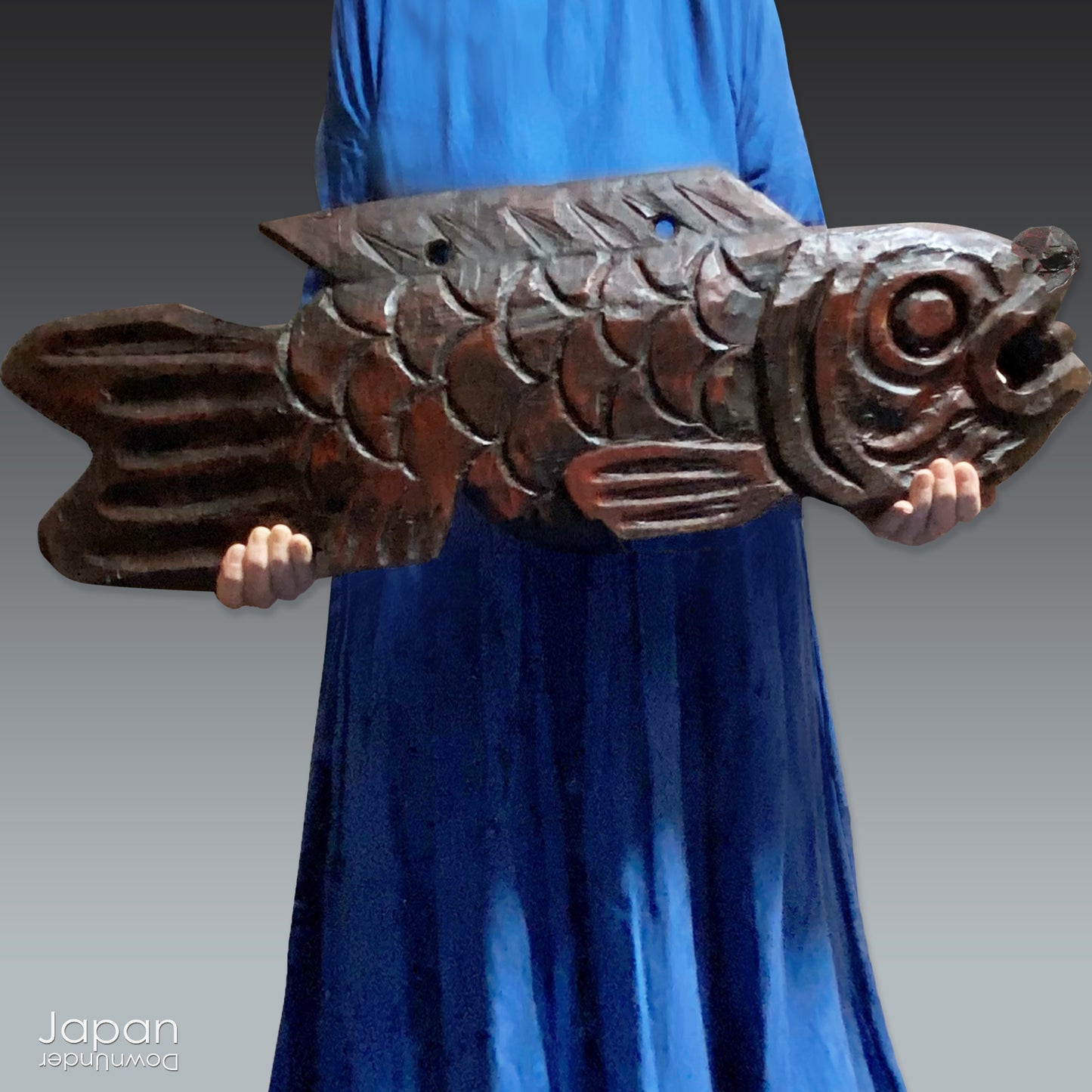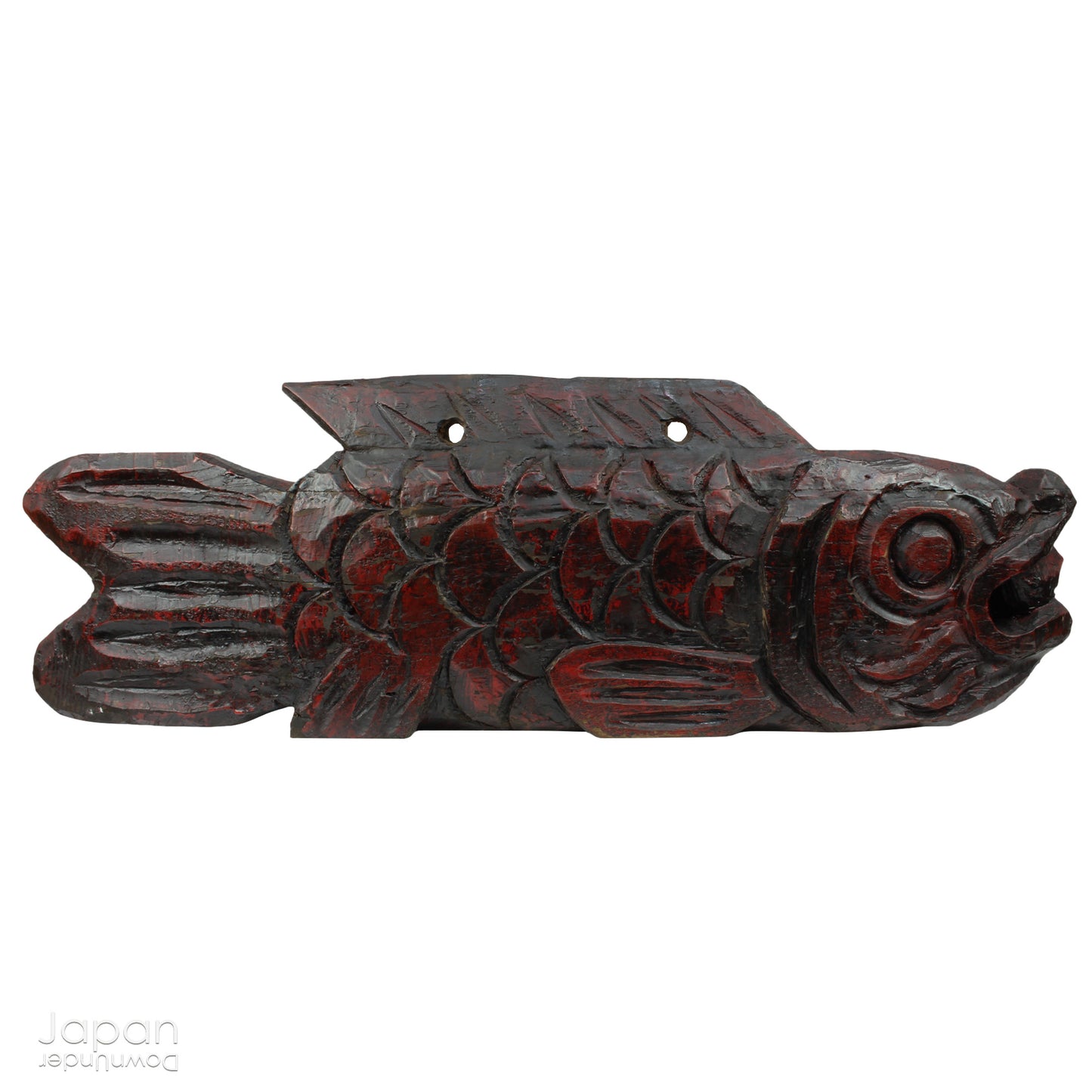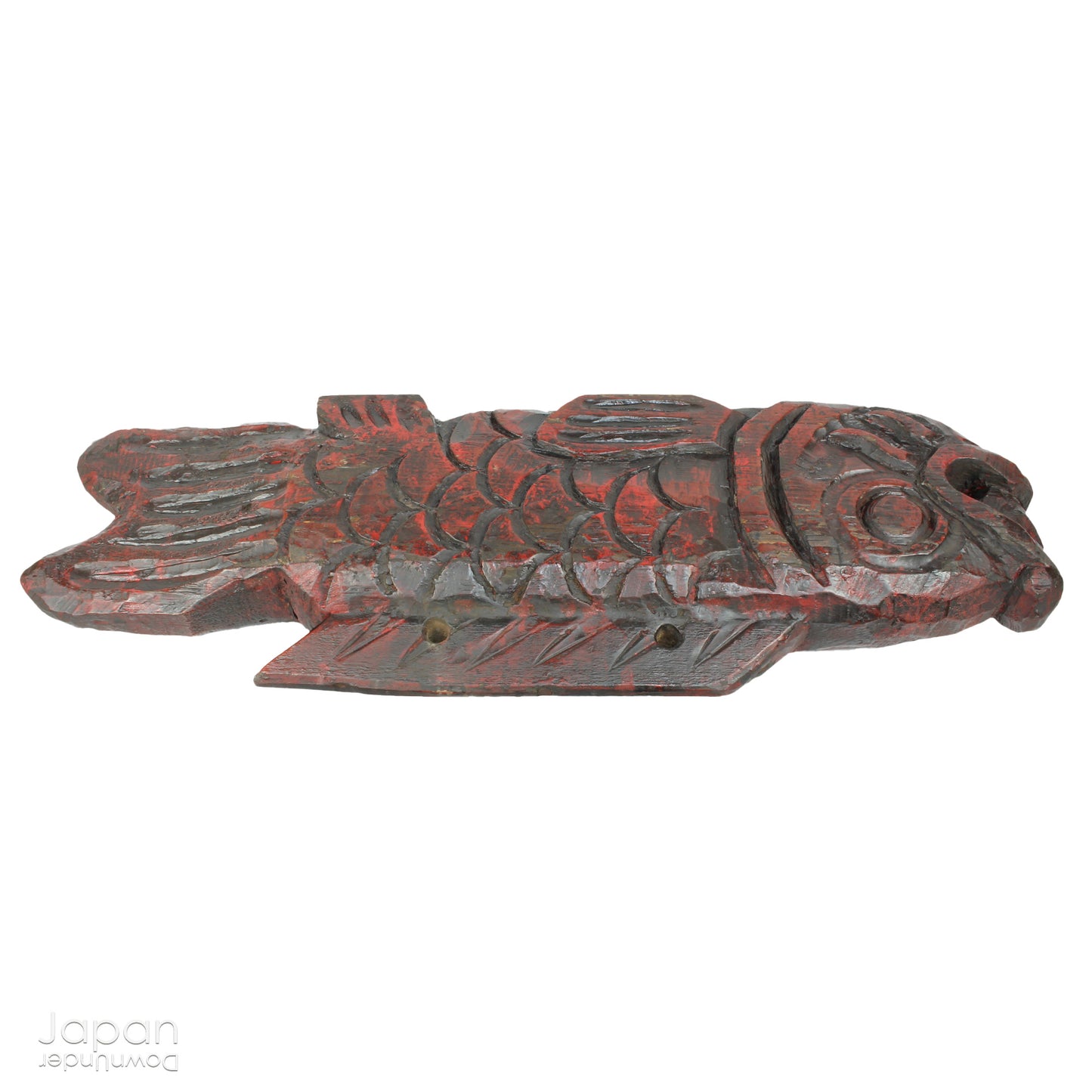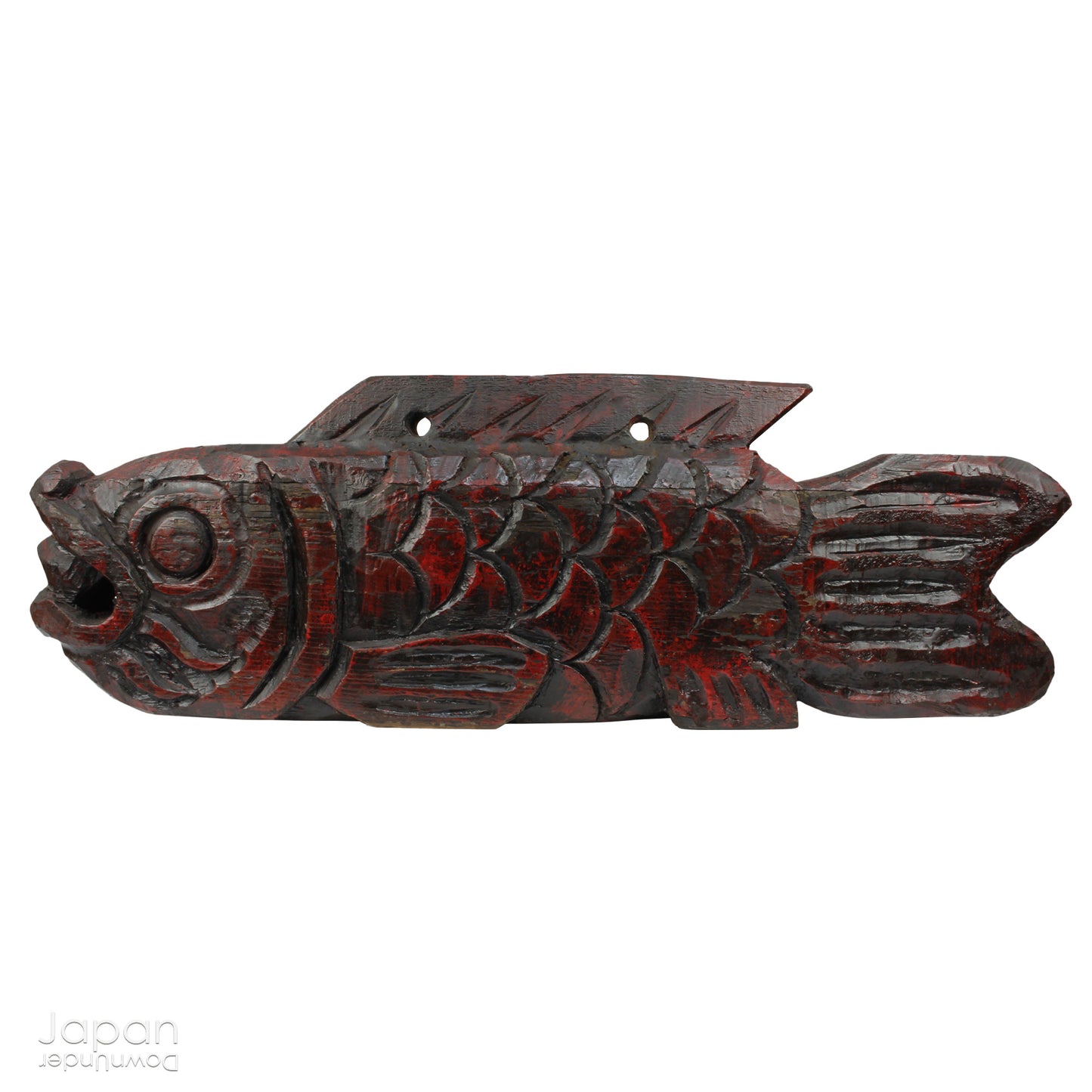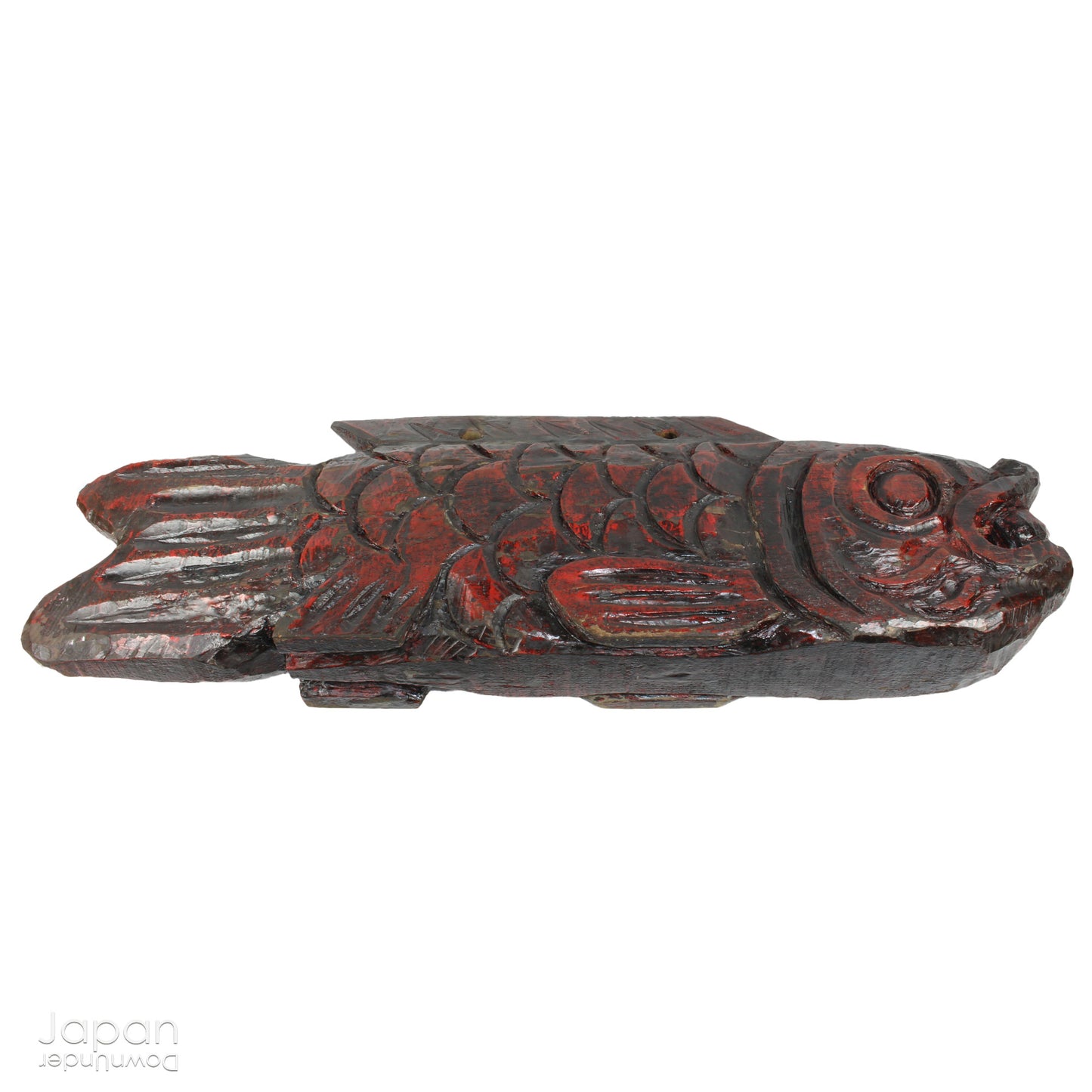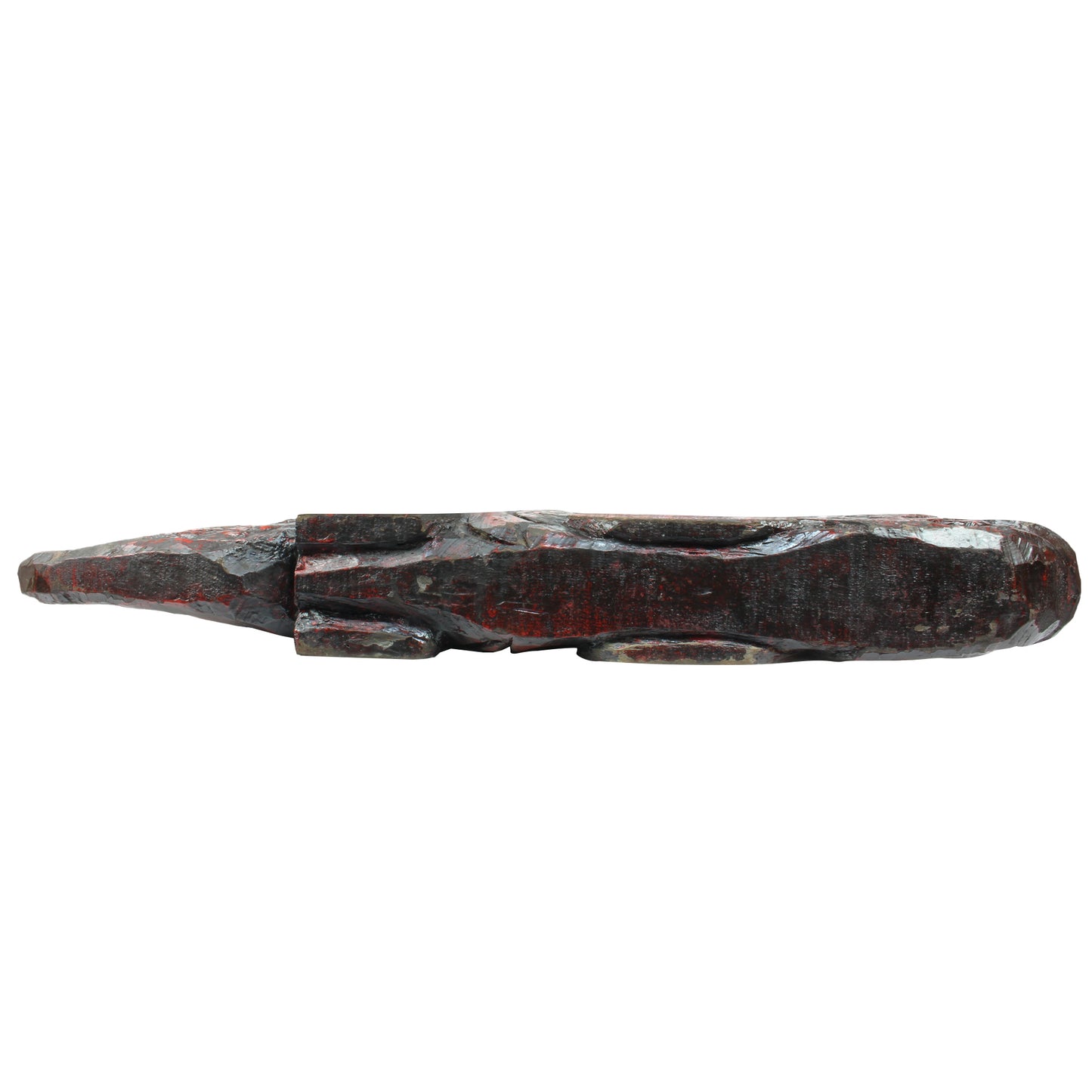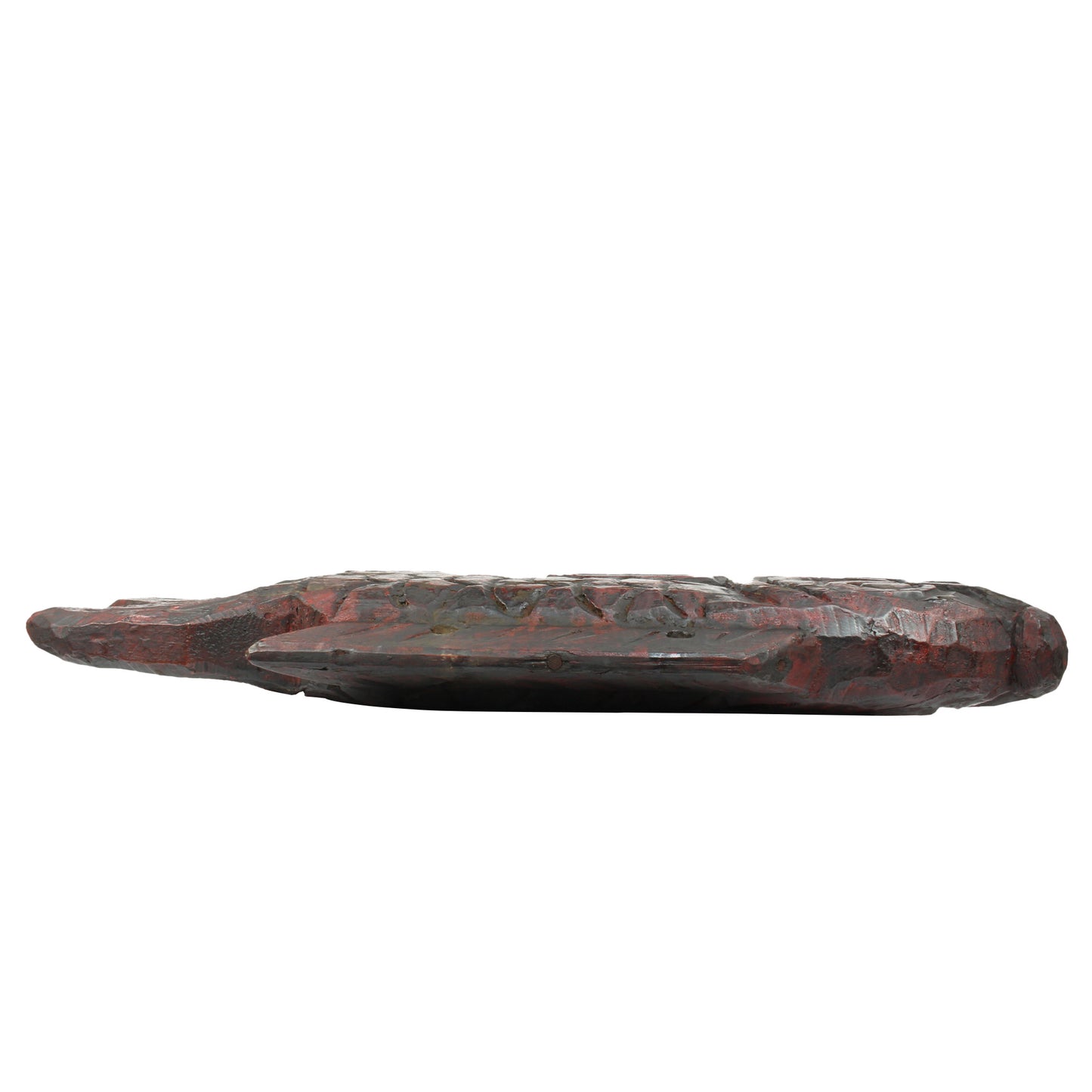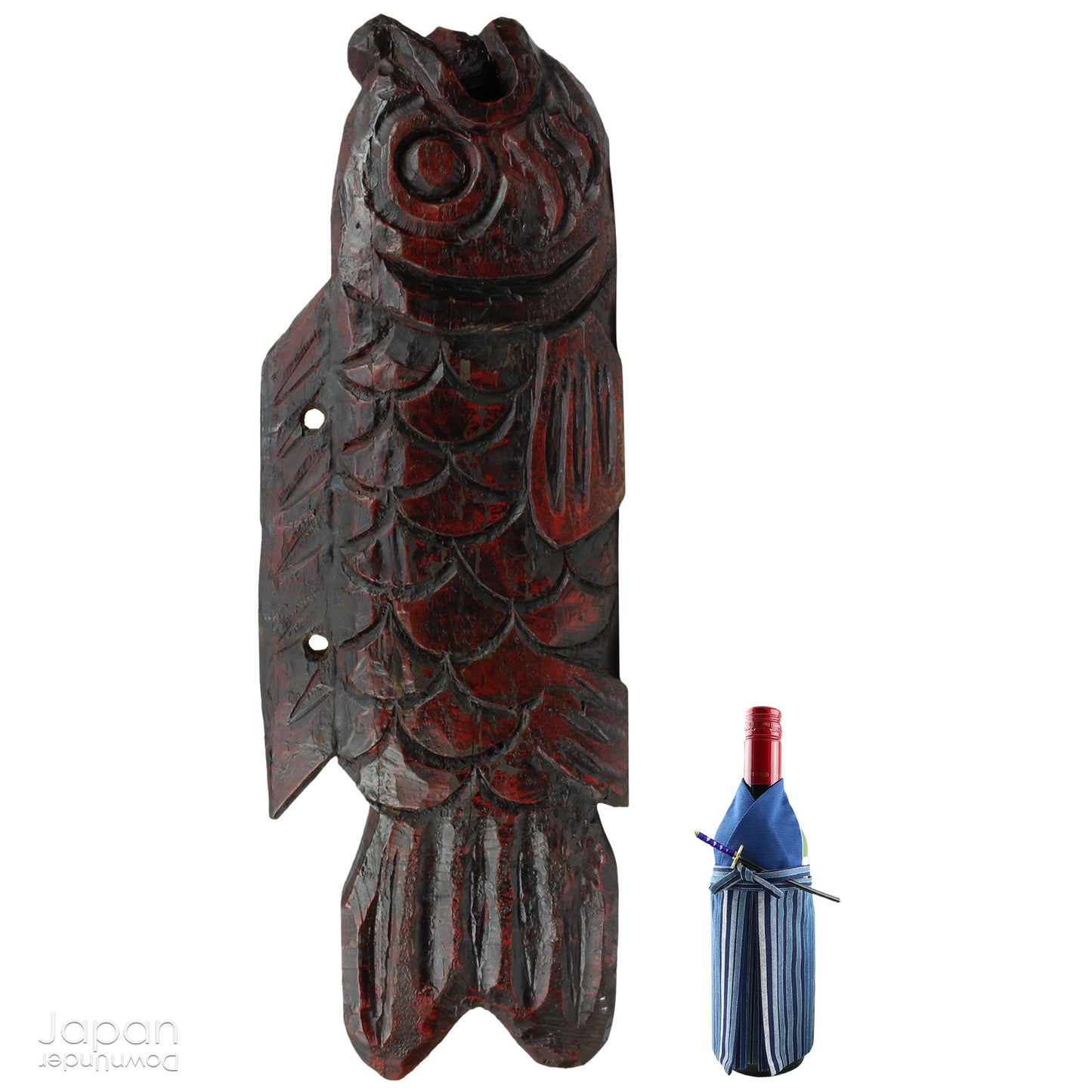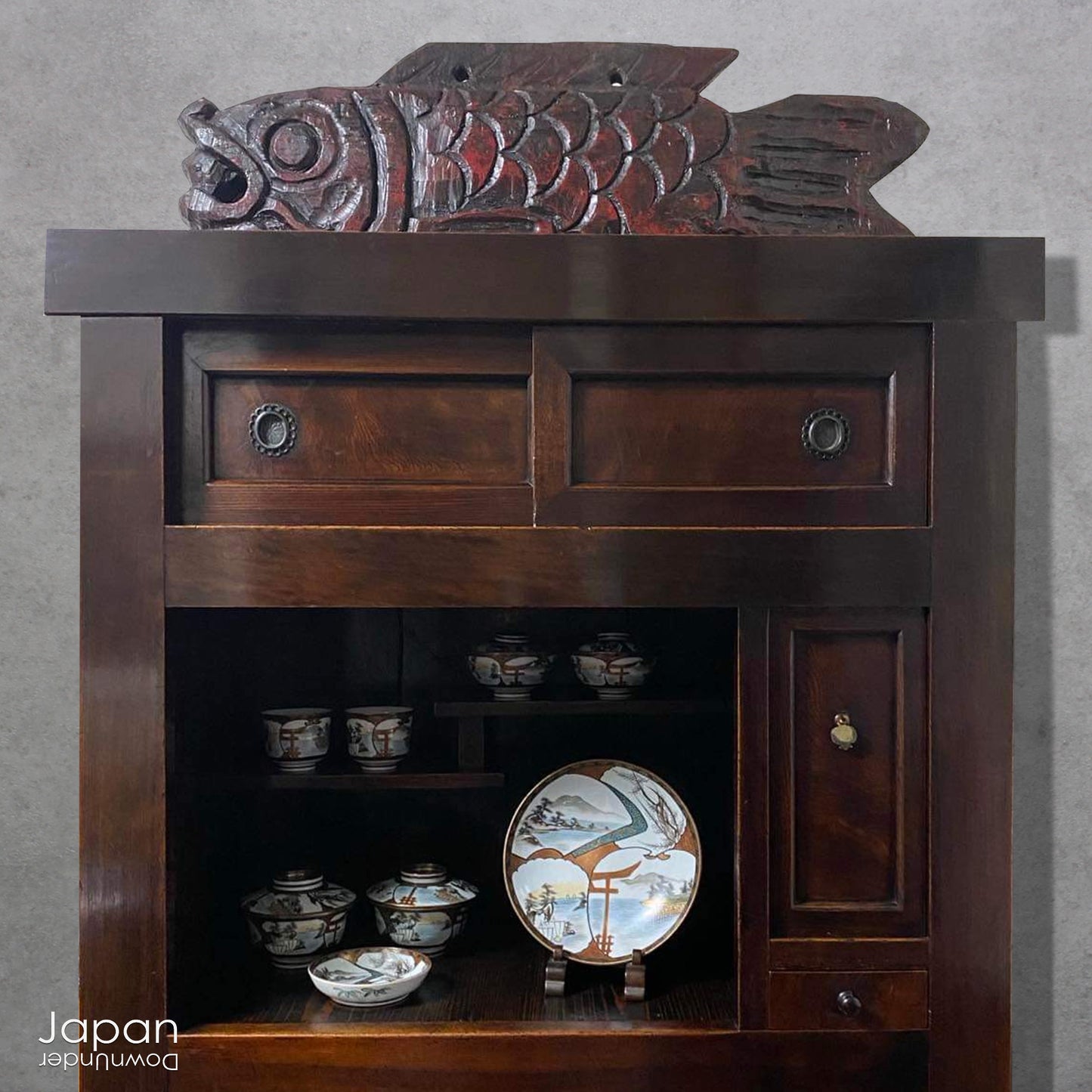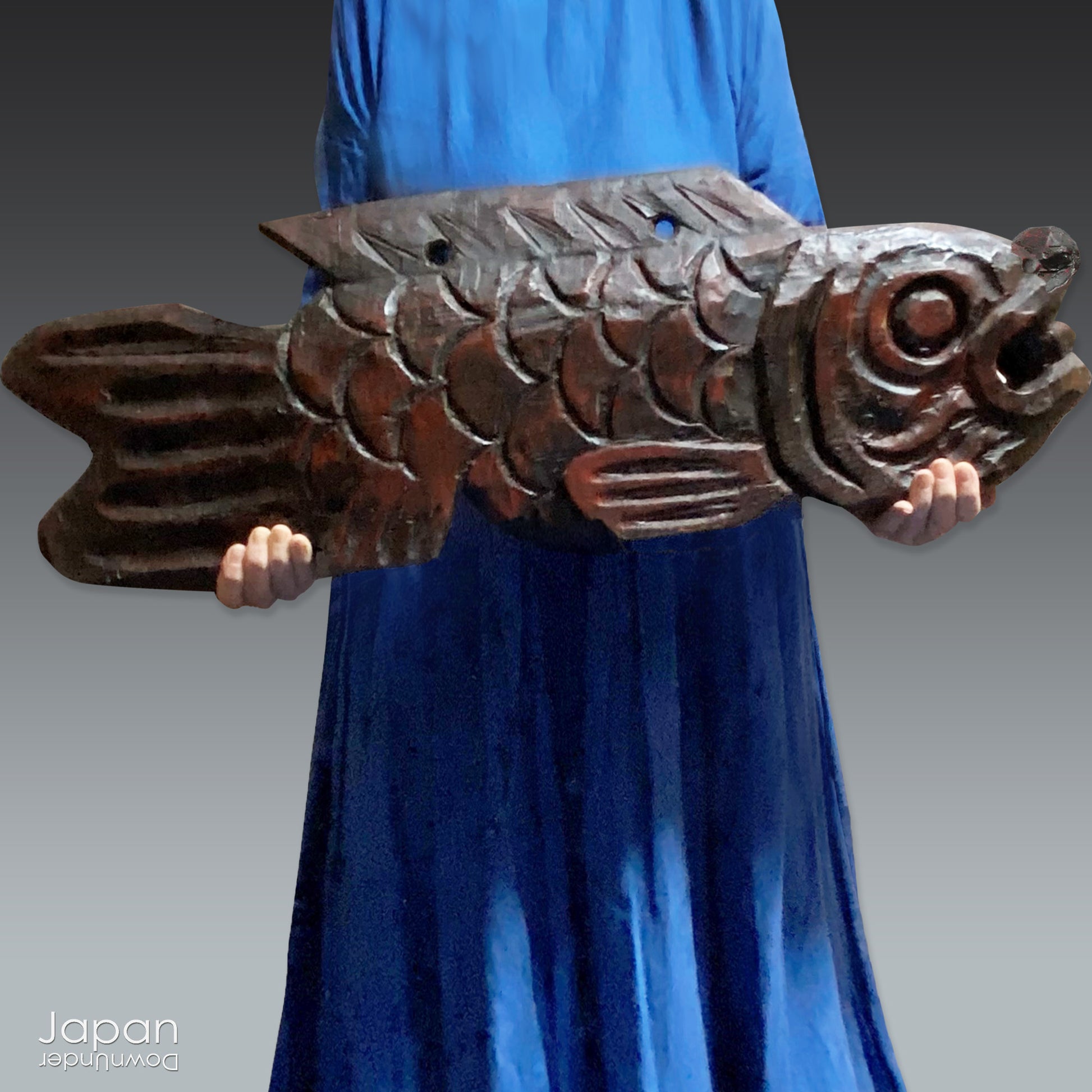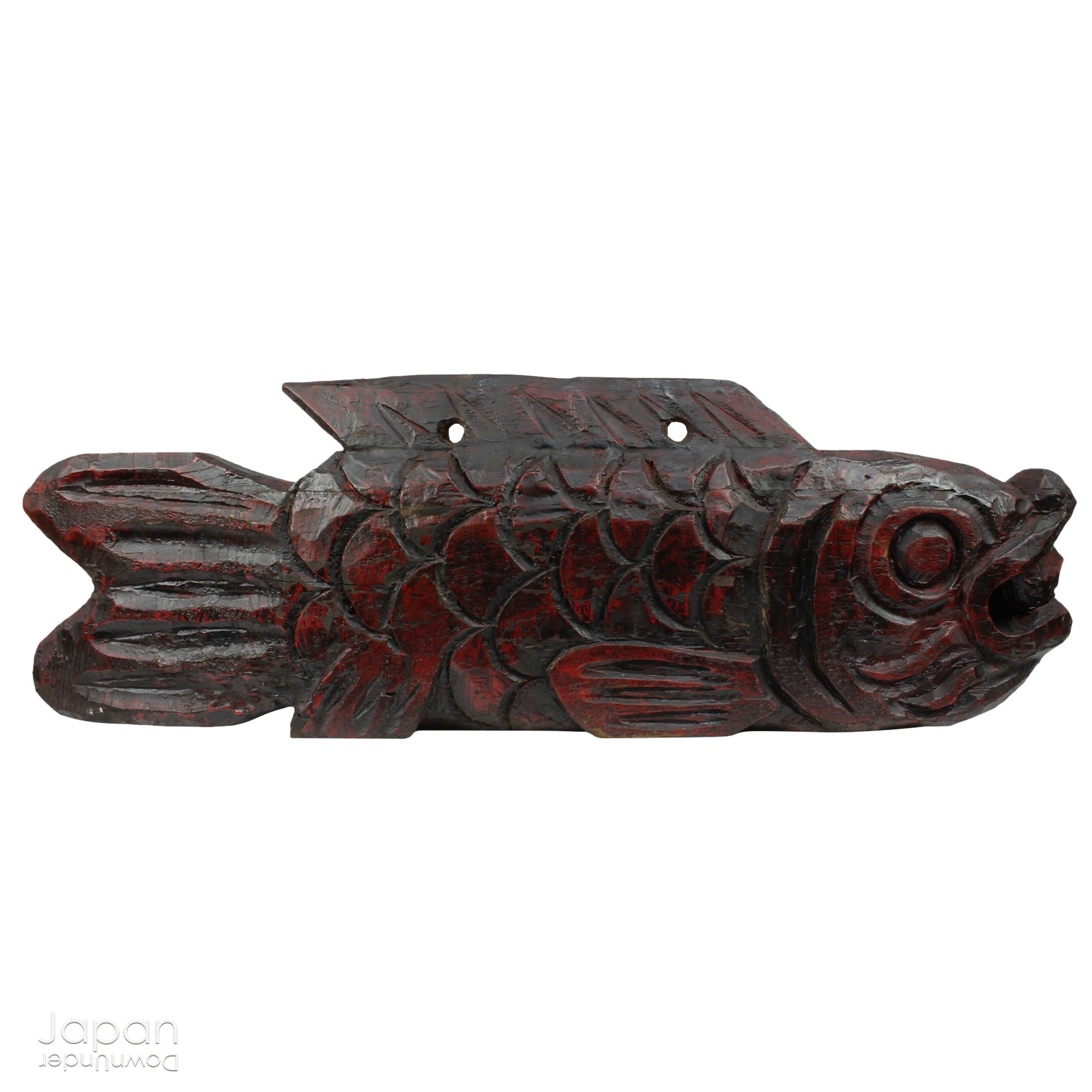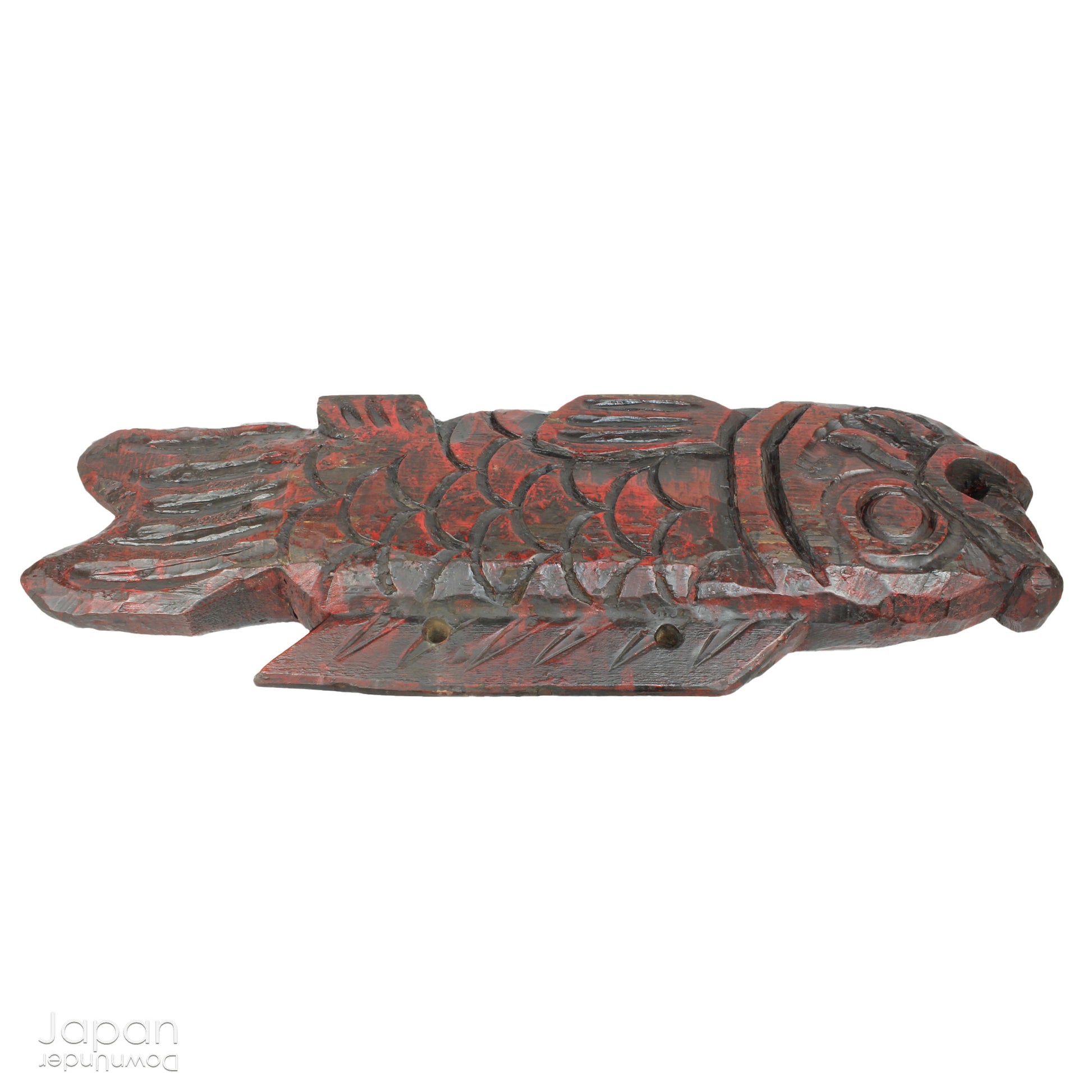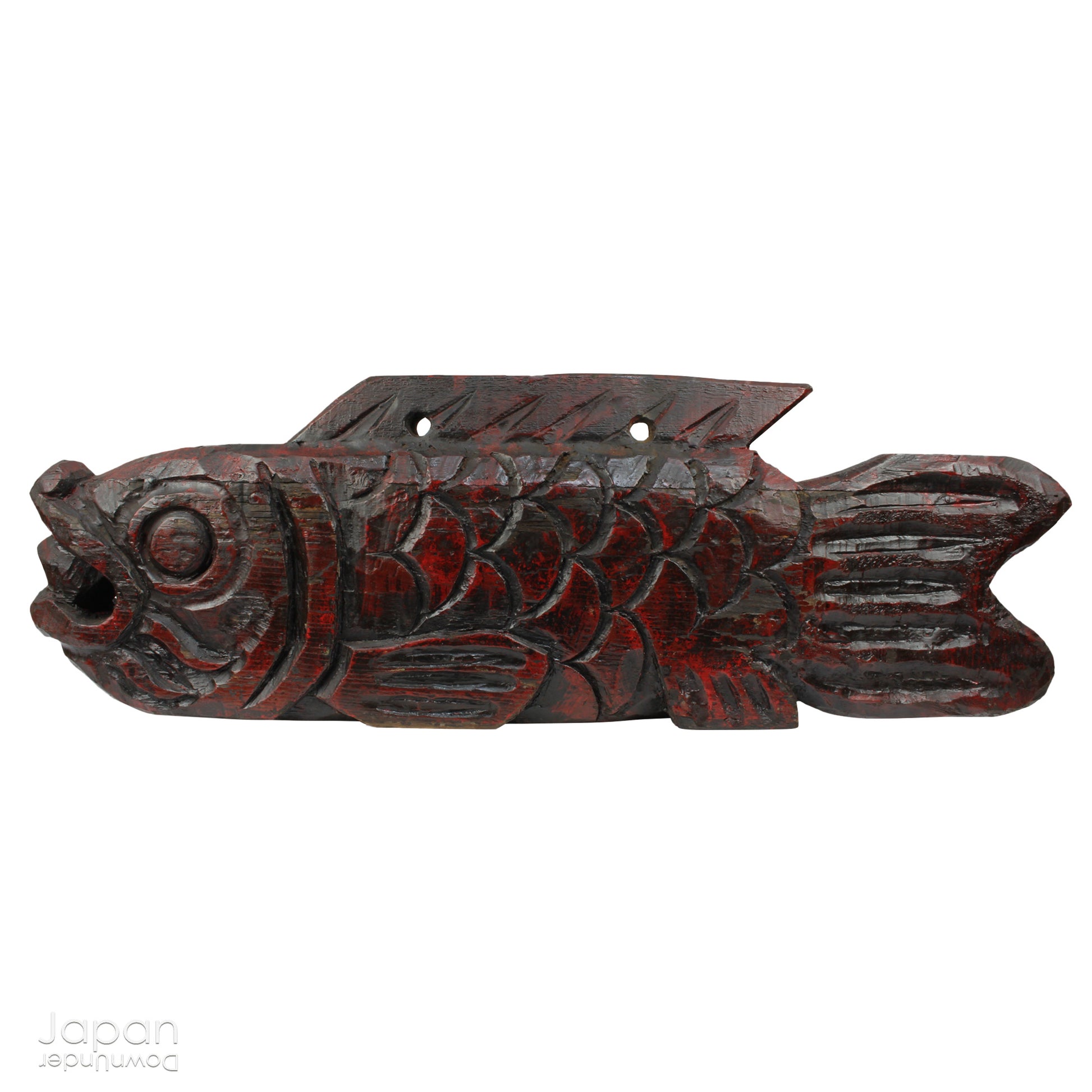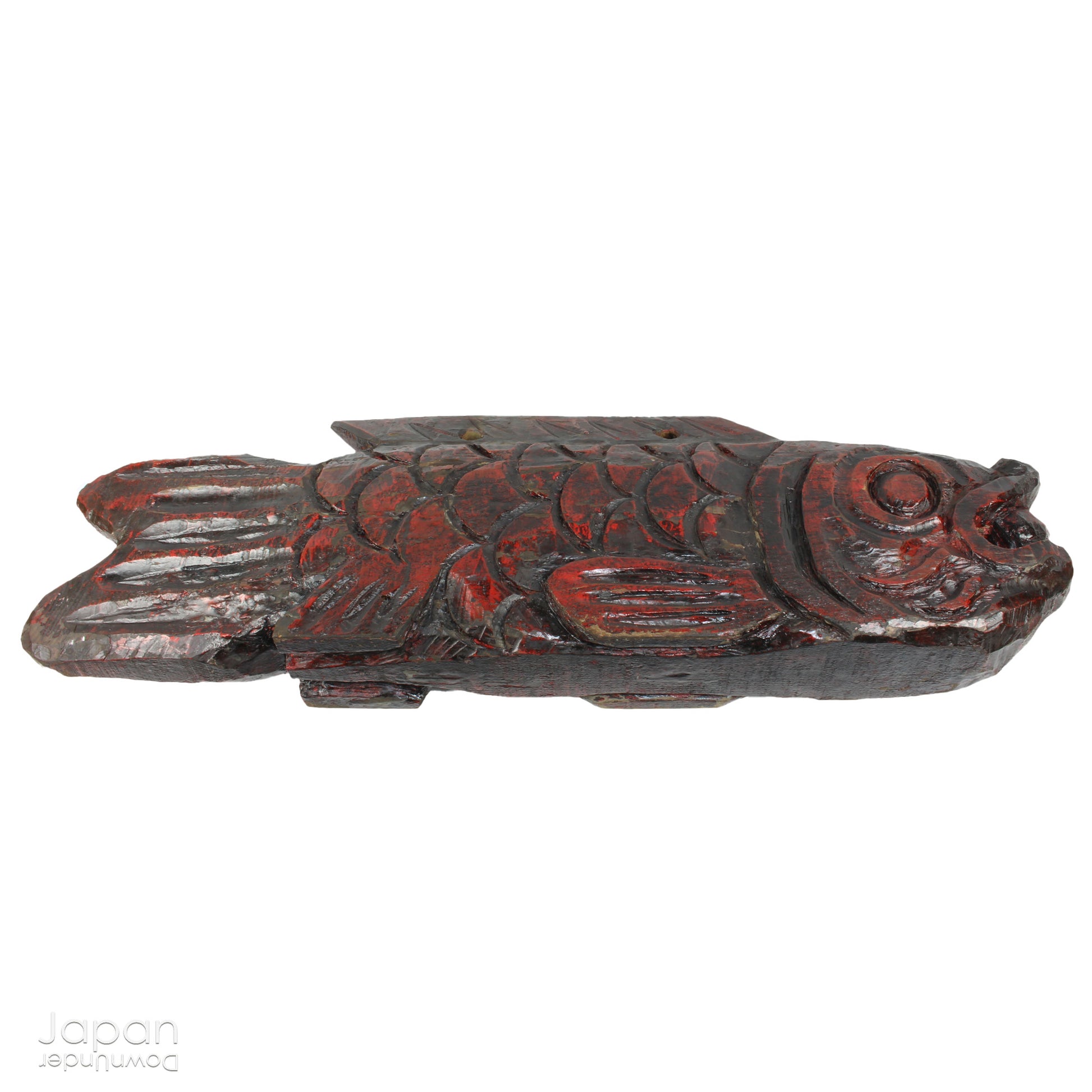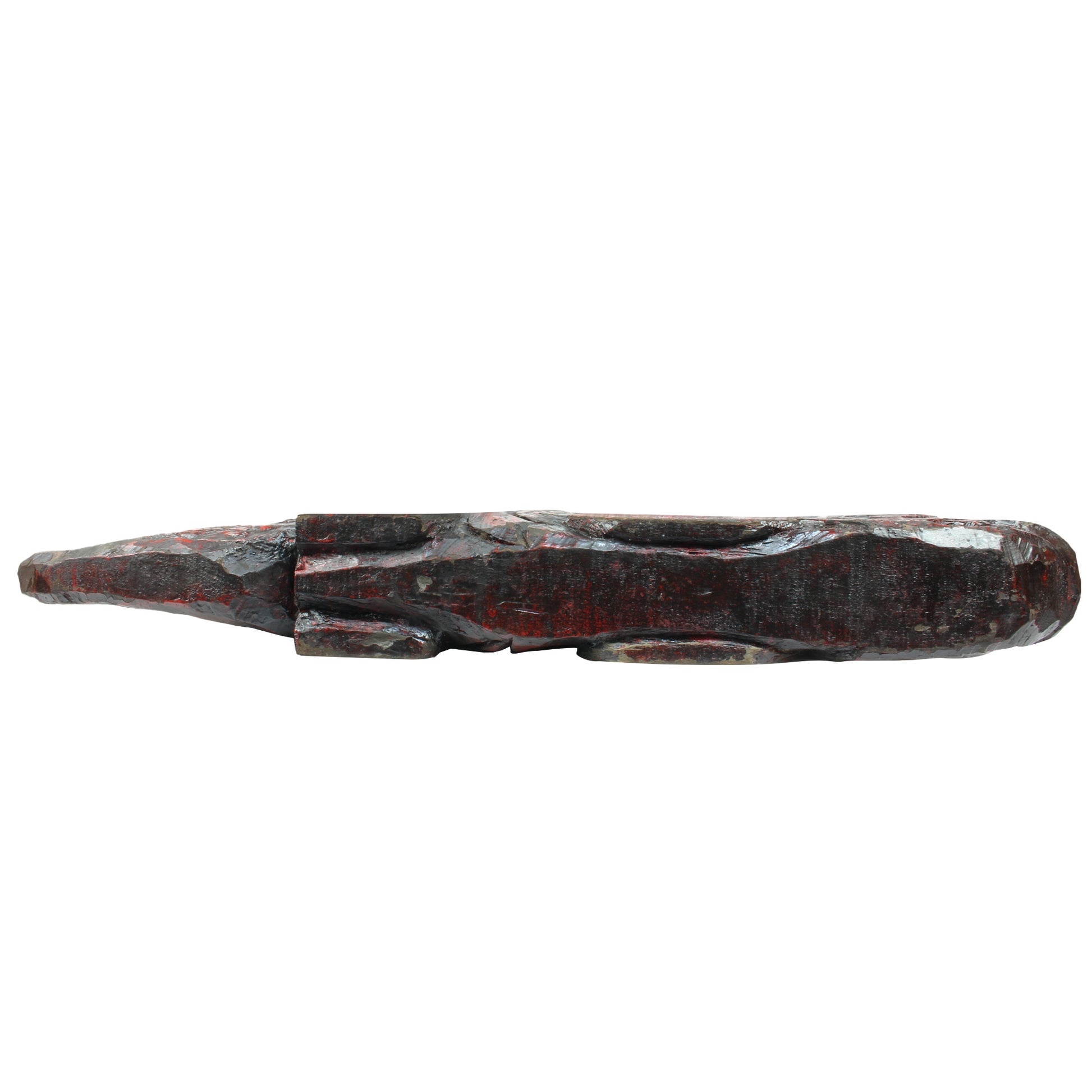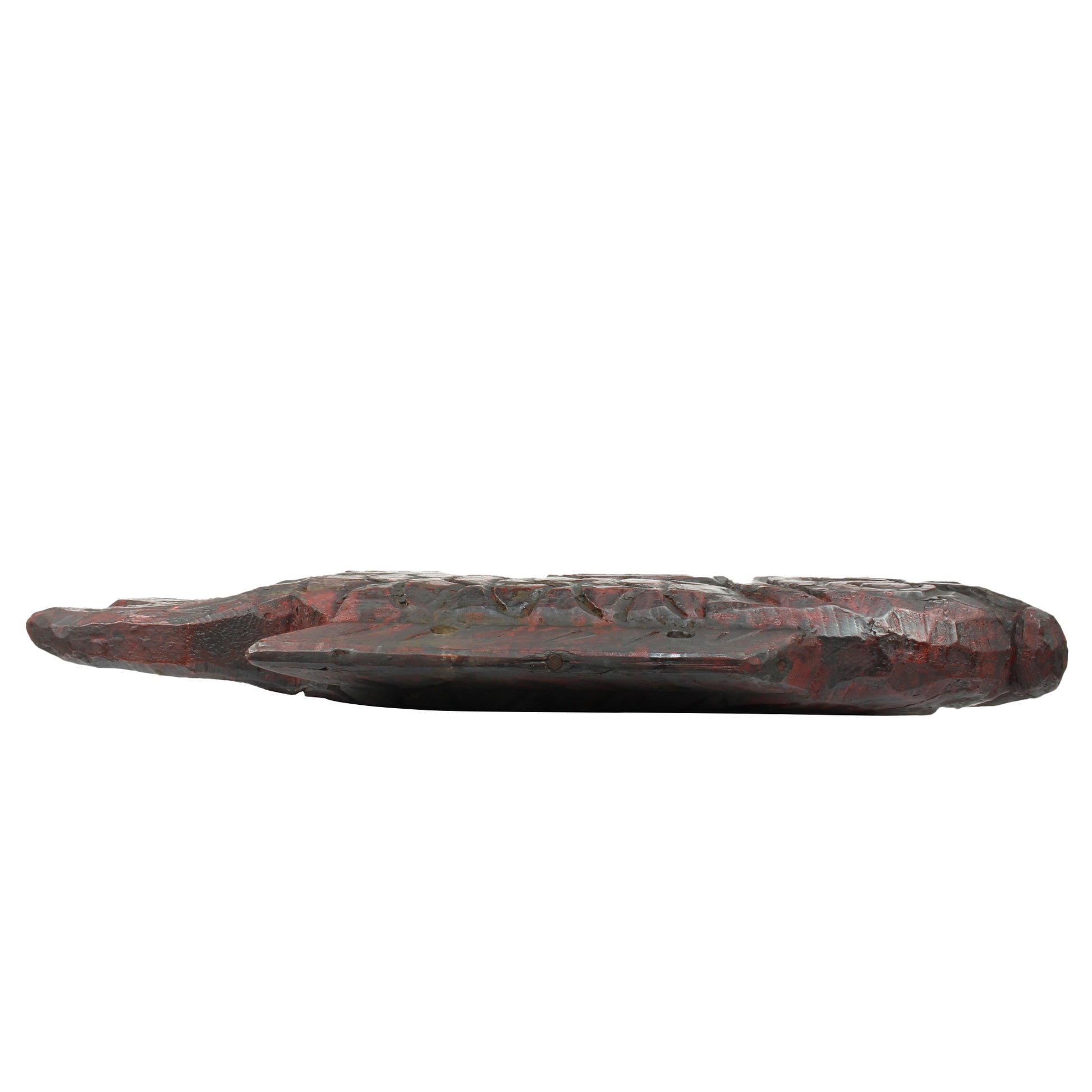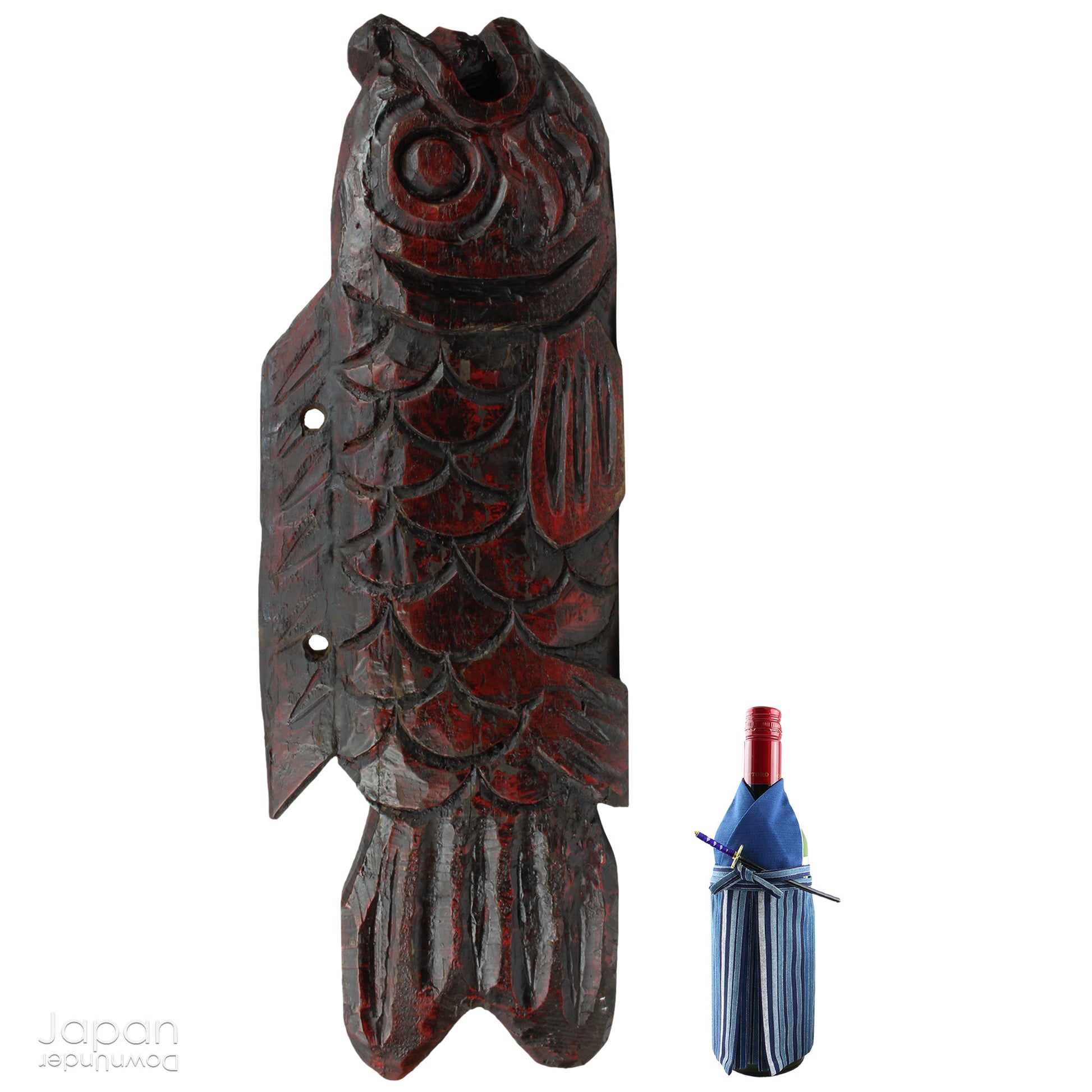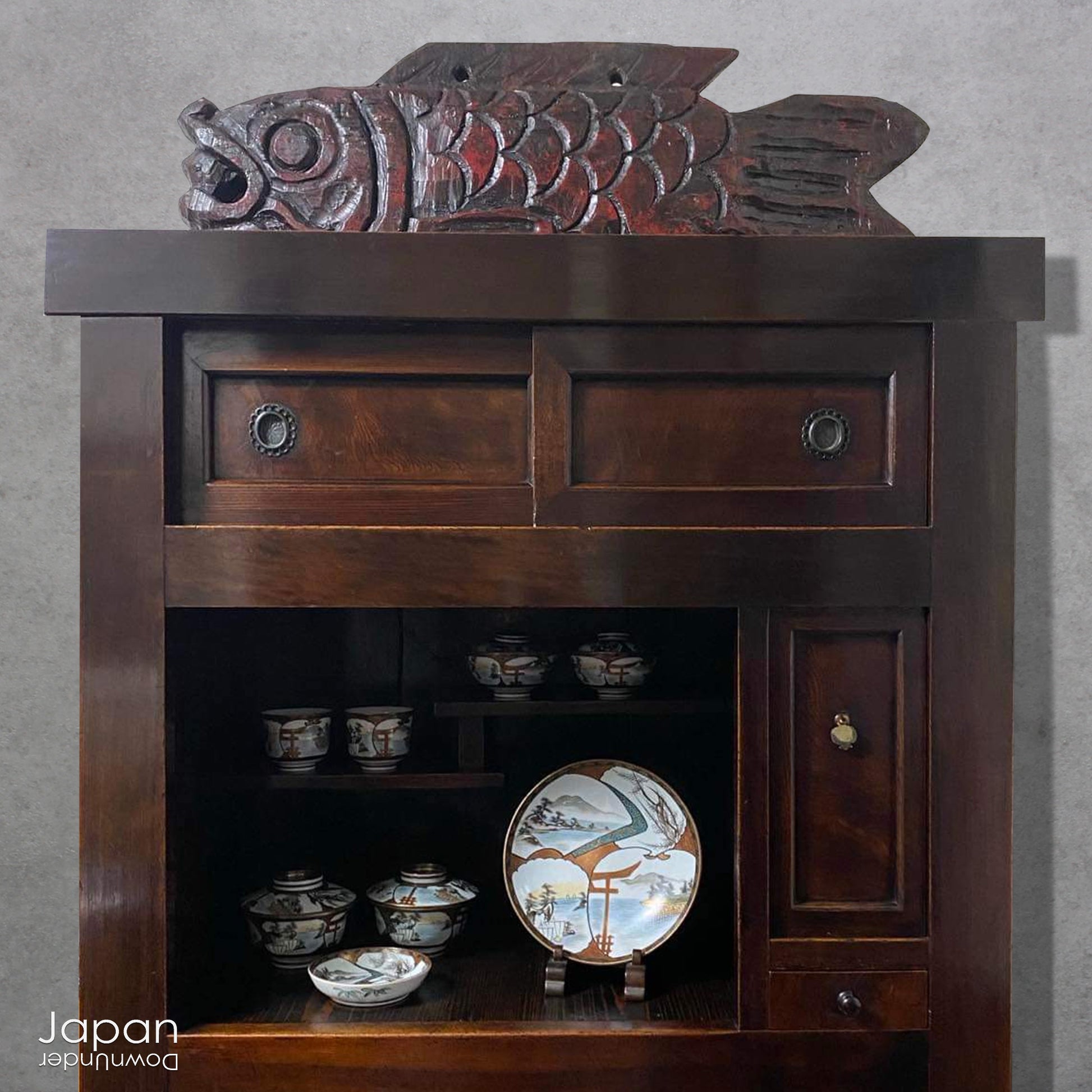JapanDownUnder
large handmade wooden fish drum - buddhist religious decor for serene spaces
large handmade wooden fish drum - buddhist religious decor for serene spaces
Couldn't load pickup availability
Love Japanese Style Like We Do
Transform your space with the beauty and history of this remarkable extra-large wooden Buddhist fish drum, a stunning piece that effortlessly blends rustic elegance with spiritual significance. Handcrafted with precision and care, this drum serves as a striking religious accent, perfect for any space with a touch of serenity and cultural depth.
Known as a gyoban, this antique fish drum was once used in Buddhist temples to summon monks to prayer and gatherings. Crafted from a single, substantial plank of wood, its fish-shaped design evokes a sense of sacred symbolism. The detailed carving - featuring intricately etched scales, a large eye, and a gracefully detailed fin - brings the fish to life. At its mouth, a large round pearl symbolizes unity, adding a layer of profound meaning to the piece.
Measuring an impressive 82 cm (32.2") across, this grand drum carries a substantial weight and presence, making it a focal point in any room. The drum is beautifully coated in a deep red lacquer, with a rich patina that speaks to its vintage character. Some natural wear and areas where the wood peeks through the lacquer only add to its charm, offering a glimpse into its storied past. Please note, there is no striker included with the piece.
This gyoban remains in good vintage condition, showing gentle signs of age, including light surface peeling—further enhancing its authentic, aged beauty. It’s a perfect display piece for your spiritual or artistic space, whether resting atop a chest, bookshelf, or altar.
Bring home a piece of history that combines culture, craftsmanship, and elegance. Add this striking temple art to your collection and enjoy the peaceful energy it brings.
- fish measures around 82 cm (32.3”) across x 28 cm (11”) high x 11 cm (4.3”) deep.
- weighs 5,500 gm.
(listing for fish drum only)
SHIPPING INFORMATION
- please read our shipping notes in shipping policy.
- we use recycle packaging wherever possible and wrap for safety, rather than appearance!
ABOUT OUR VINTAGE AND ANTIQUE ITEMS
We list pieces we feel are worthy of display. There may be scratches, dents, fading and signs of wear and tear. We try to explain the condition of each item exactly, but may miss something.
Information regarding the item and it’s age is obtained from dealers and our personal research. We do our best to give you the correct information but please be aware that we cannot guarantee this information.
Please message us prior to purchase with any questions you may have about our products.
GYOBAN-FISH BOARD DRUM
The gyoban is a long wooden board, shaped like a fish, and was used as a Zen Buddhist drum. The fish is carved on the surface with an uroko, or fish scale pattern and holds a round pearl in its mouth. It was usually hung outside temple doors and was struck to announce meal times, meditation and other gatherings for monks. It is believed that each time the gyoban is struck in the belly, desire is dispelled.
The origin of the fish shape is not clear, but some say the gyoban fish form is because fish do not close their eyes when sleeping. This reminds monks to always be alert and concentrate on their sutras; the drum sound symbolizing wakeful attention.
There is also a legend where a Chinese Buddhist monk was walking to India to collect sutras. He came to a fast flowing river. A large fish came out of the water and offered to take the monk to the other side. Halfway across the river, the fish said he wanted to atone for a crime committed when he was a human. He asked the monk, if he met Buddha, to find out what was needed for the fish to become a bodhisattva. The monk quickly agreed.
It took the monk 17 years to gather the sutras. When he was returning to China he came to the same fast, dangerous river. Again, the fish came out of the water, offering to take the monk across. On the way, he asked the monk if he had fulfilled his request. The monk said he had forgotten and the angry fish threw the monk into the river and swam away. The monk was saved from drowning by a fisherman, but the sutras were all lost and destroyed.
The monk was so angry that he had a fish carved out of wood. As he recalled the misfortune of his wasted 17 years of searching for the sutras, he beat the fish with a hammer. Each time he hit the fish he was surprised to discover that a Chinese character came out of the fish’s mouth until finally, years later, all the lost sutras were recovered.
The gyoban board or plank was the first wooden fish drum to be developed and it gradually evolved into the round, hollow wooden fish used by Buddhists today.
Share
